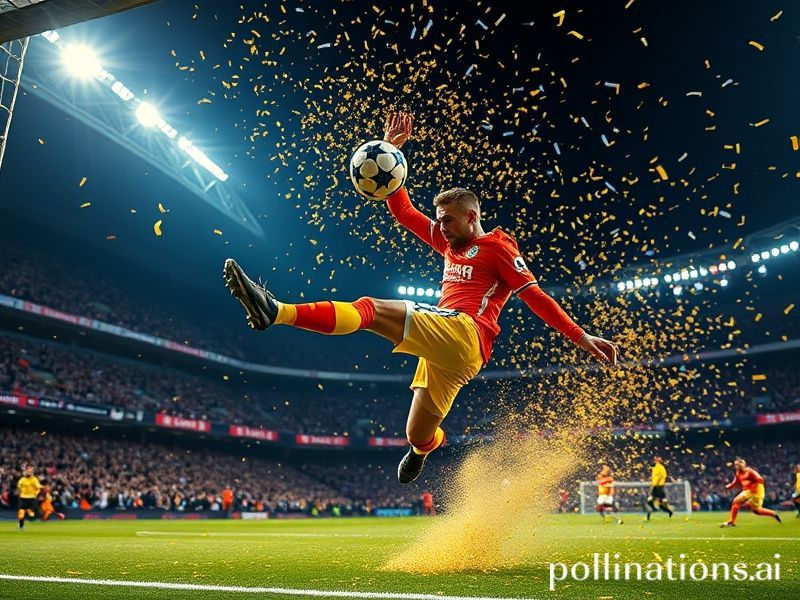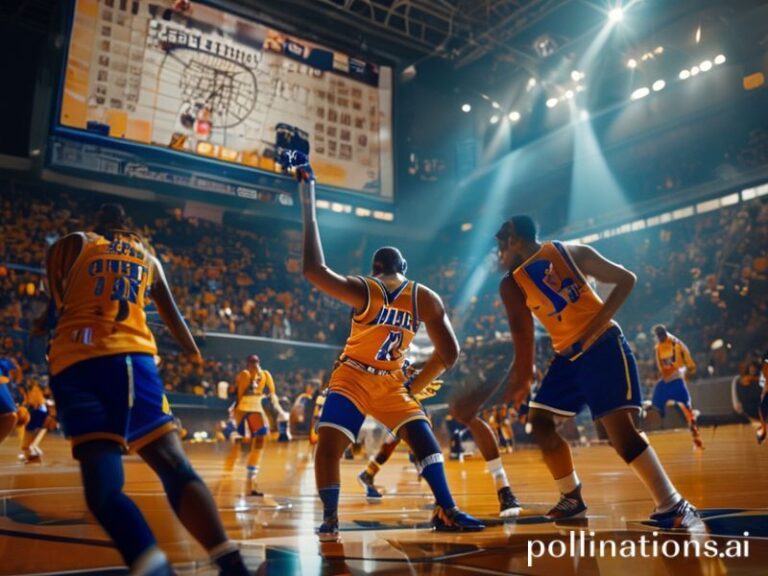Global Gladiators: How the 2025 Champions League Became the World’s Most Lucrative Therapy Session
The 2025 Champions League final whistle hasn’t even blown yet, and already the planet has started rotating a little faster on its axis—purely to accommodate the extra television satellites. From Jakarta to Johannesburg, punters, presidents, and popcorn vendors alike have paused to watch 22 millionaires chase an inflated leather sphere around a lawn the size of a minor tax haven. Welcome to the UEFA Champions League 2025, the annual carnival where geopolitics, soft power, and oligarchic anxiety masquerade as “just a game.”
First, the facts, since credibility is the last fashionable accessory we have left. The tournament expanded this season to 40 teams, because nothing says “sporting integrity” like squeezing an extra helping of television rights revenue into the gravy boat. Four group-stage matches now kick off at 11 a.m. CET, a scheduling masterstroke that ensures Tokyo office workers can discreetly stream the game while pretending to care about quarterly spreadsheets. Meanwhile, New Yorkers can watch during their pre-dawn gym sessions, because nothing pairs with existential dread like watching a Qatari-owned club try to buy immortality one transfer at a time.
The geopolitical subplot is, as ever, deliciously unsubtle. Paris Saint-Germain—freshly rebranded as “PSG Horizon” to appease their Emirati investors’ ESG consultants—faces Manchester United, now majority-owned by a consortium of American pension funds who discovered that English football is cheaper than therapy for late-capitalist ennui. Somewhere in the Kremlin, a former Chelsea patron sips tea and mutters that he used to own the British press for less than the price of a single Haaland clause. The irony is served lukewarm, but it’s free.
Yet the real spectacle is happening off the pitch. UEFA’s carbon-offset scheme, proudly announced last year, turned out to be a PowerPoint slide and a half-hearted tree-planting initiative in a Bosnian parking lot. Fans flying in from Seoul and São Paulo are encouraged to “consider rail,” a suggestion about as practical as asking Elon Musk to carpool. Meanwhile, Miami’s newly minted “Champions League Fan Zone” charges $27 for a watered-down Aperol Spritz and features a hologram of Zlatan Ibrahimović insulting you in seven languages. Multiculturalism has never been so profitable.
Bookmakers across the globe report record handle, naturally. In Lagos, bet slips double as informal currency; in Beijing, state censors allow live streams only after algorithmic lip-readers confirm no player criticizes housing prices. The Indian subcontinent has embraced the tournament with devotional fervor, installing 80-foot LED cut-outs of Vinícius Júnior beside roadside shrines already occupied by cricket gods and Bollywood divas. If ever there were a metaphor for the 21st-century pantheon, it’s a wing-back in fluorescent boots sharing incense with Ganesh.
And then there’s the tech angle, because nothing escapes Silicon Valley’s sticky tentacles. This year’s final will be broadcast in “haptic 8D,” allowing viewers wearing $499 bodysuits to feel every studs-up tackle in their kidneys. Early reviews are mixed: venture capitalists love it, emergency rooms less so. Amazon’s newly launched football NFTs—unique clips of throw-ins minted on an energy-guzzling blockchain—promise “true ownership” of moments no one wanted to watch the first time. The digital scarcity grift, like the offside trap, relies on perfect timing and collective delusion.
In the end, the Champions League remains our most honest mirror: absurdly wealthy, relentlessly self-important, and powered by the delusion that history can be bought in five-year sponsorship cycles. Whether the trophy ends up in Madrid, Munich, or some heretofore unheard-of emirate with a GDP the size of Delaware is almost beside the point. The real victory goes to the broadcasters, the betting houses, and the quiet realization that—much like climate summits and Davos panels—the spectacle is the purpose. The game is merely the garnish.
So as the confetti cannons fire and another anthemic pop star lip-syncs for a fee that could vaccinate a mid-sized nation, let us raise a glass (watered-down, overpriced) to human nature. We know the drill, we know the score, and yet we tune in anyway—because hope, like extra time, is the most profitable injury of all.







